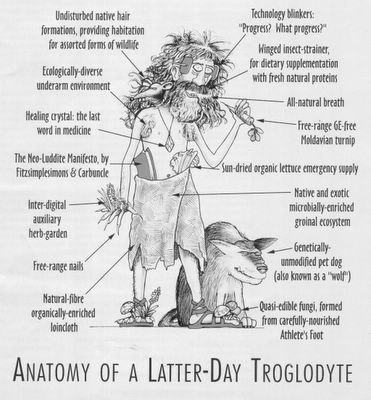
Holiday House, by Organon Architecture
 Hopper Brothers' Waterways projects have been wildly successful - and for very good reason - with only politicians and busybodies finding anything about them to object to. Bob Dey explains here today many of the very good reasons why they've been so successful, and what's up with the Hoppers' latest project at Marsden Cove.
Hopper Brothers' Waterways projects have been wildly successful - and for very good reason - with only politicians and busybodies finding anything about them to object to. Bob Dey explains here today many of the very good reasons why they've been so successful, and what's up with the Hoppers' latest project at Marsden Cove."Technology is integral to the advancement of the world [they said]. Fire, the wheel, steam power, electricity, radio transmission, air and space travel, nuclear power, the microchip, DNA: the human race has ever been on the cusp of innovation. Currently, biotechnology is the new frontier. Continuation of research is critical to New Zealand's future."

Globally, according to the International Service for the Acquisition of Agri-biotech Applications, biotech acres planted have grown almost 50-fold since 1996. They now cover the equivalent of 40 percent of the U.S. land area. An increasing percentage of these crops are in places with hungry populations such as China and South Africa. In the United States, three-fourths of the cotton, almost half the corn and 85 percent of the soybeans planted are biotech. Considering the massive variety of foods we consume containing corn and soy and cottonseed oil, almost all of us eat biotech food daily.And evidence continues to grow that the food is healthier than 'health foods', a godsend for third-world farmers who can be productive without expensive fertilisers and pesticides, and in the case of crops like the soon-to-be-rolled-out golden rice 2, able to provide highly nutritious food where at the moment there is very little. This stuff feeds the world better than a song by Sting or Bob Geldof ever could.
 (thanks to Stephen Hicks for the link):
(thanks to Stephen Hicks for the link):But this general condemnation of business seems an unlikely explanation for films’ anti-business tone. Capitalism has brought vast wealth to a broad segment of U.S society, including most moviegoers and films’ writers, directors and stars. One would not be surprised to see occasional criticism of capitalism, or to see moviemakers use the drama inherent in the oppression and eventual triumph of economic underdogs.[Emphasis mine.] Seems to be the same problem that opposition politicians have with the Government, don't it?
But why should capital always be the heavy? Why should filmmakers so rarely exploit the dramatic potential of business triumph, or of underdog businesspeople struggling against government tyrany? More importantly, films are the product of large companies. Why would they attack themselves?
This article seeks to explain films’ bias against capital. In brief, it is not business itself that filmmakers do not like, but the capitalists who control it. But this is not the classic view of the struggle between capital and labor. Filmmakers display little concern with workers' problems and only rarely blame firms' social irresponsibility on the fact that capital rather than labor is in control. Filmmakers’ main problem with capital being in control seems to be that the filmmakers are not.
There is an alternative to the environmentalist argument. It is one that says the Earth is man's garden and that man's mind as fully competent to meet the challenges of living in his garden, whatever those challenges may be. It is an argument that recognizes that the ultimate resource is not oil, coal, caribou or even the energy of the atom. It is an argument that recognizes that the ultimate resource is a free, unfettered human mind.Message to Green Party: Leave us alone.



Lawyer representing the Berrymans who has taken a principled but perhaps personally expensive stand in publishing the Butcher Report. The report lays the blame for the bridge accident at their farm at the Army's door, but by publishing it in defiance of a court order Moodie faces serious consequences. Who said Lawyers are always unprincipled.
Now if it is clearly understood that the respect and protection of the right to private property facilitates not only the pursuit of one’s direct, immediate self-interest but also all those other projects that people so evidently and widely support, then the abrogation of that right can be seen in a different light from the usual.Note especially what Tibor says about confiscation, and remember that compensation for confiscation is what many still believe as being being the essence of property rights: ACT's 2002 manifesto for example offers the plank: "Improve the security of property rights by establishing a prima facie right of compensation for regulatory takings."
Many who oppose private property rights do so on the grounds that ... it simply facilitates the pursuit of private goals. Thus it must neglect others and impersonal goals. But if we understand that private property rights facilitate much else besides taking good care of one’s immediate concerns, including many of those I have listed above, then attacking it takes on a very different coloration...
Putting it a bit differently, attacking the right to private property amounts to attacking the judgments of private individuals who would have the option to support various goals they believe in. Instead, government officials—politicians, bureaucrats and their advisors—get to confiscate private property in taxes and other takings and they get to say to what ends these will be contributed.
Rob Moodie said yesterday he would fight the action and would not be silenced.Gosche's comments are worth noting, as are the names and contact details for those committee members:
The report itself was not suppressed by Justice Wild and the copy he put on the Internet was not one of those he had been ordered to return to the army, he said.
Thousands of people had seen the report on the Internet despite Crown Law putting pressure on Internet service providers to remove it from websites.
Transport and industrial relations select committee chairman Mark Gosche said last night there had been no formal request yet from any committee member for an inquiry into the saga.
 and here. We know Ken Shirley and Rodney Hide read them, because they went on to plagiarise them in subsequent speeches. Here's Ken's. Now that's fine, that's what our ideas are for, but unfortunately, they left out the conclusion. They always do.
and here. We know Ken Shirley and Rodney Hide read them, because they went on to plagiarise them in subsequent speeches. Here's Ken's. Now that's fine, that's what our ideas are for, but unfortunately, they left out the conclusion. They always do.
Haemophiliacs who contracted hepatitis C during the bad-blood saga want compensation, better medical treatment, and an apology from the Government.I wonder if their demands include unburying the relevant documents relating to the actions of then-Minister of Contaminated Blood Helen Clark. What do you think she might have to hide?
Their proposal was delivered to the Health Ministry yesterday by Mike Carnahan of the Haemophilia Foundation and accepted by the ministry's deputy director-general of clinical services, Colin Feek.

 online.
online. now, or order it up at your local newsagent.
now, or order it up at your local newsagent.